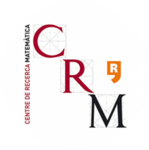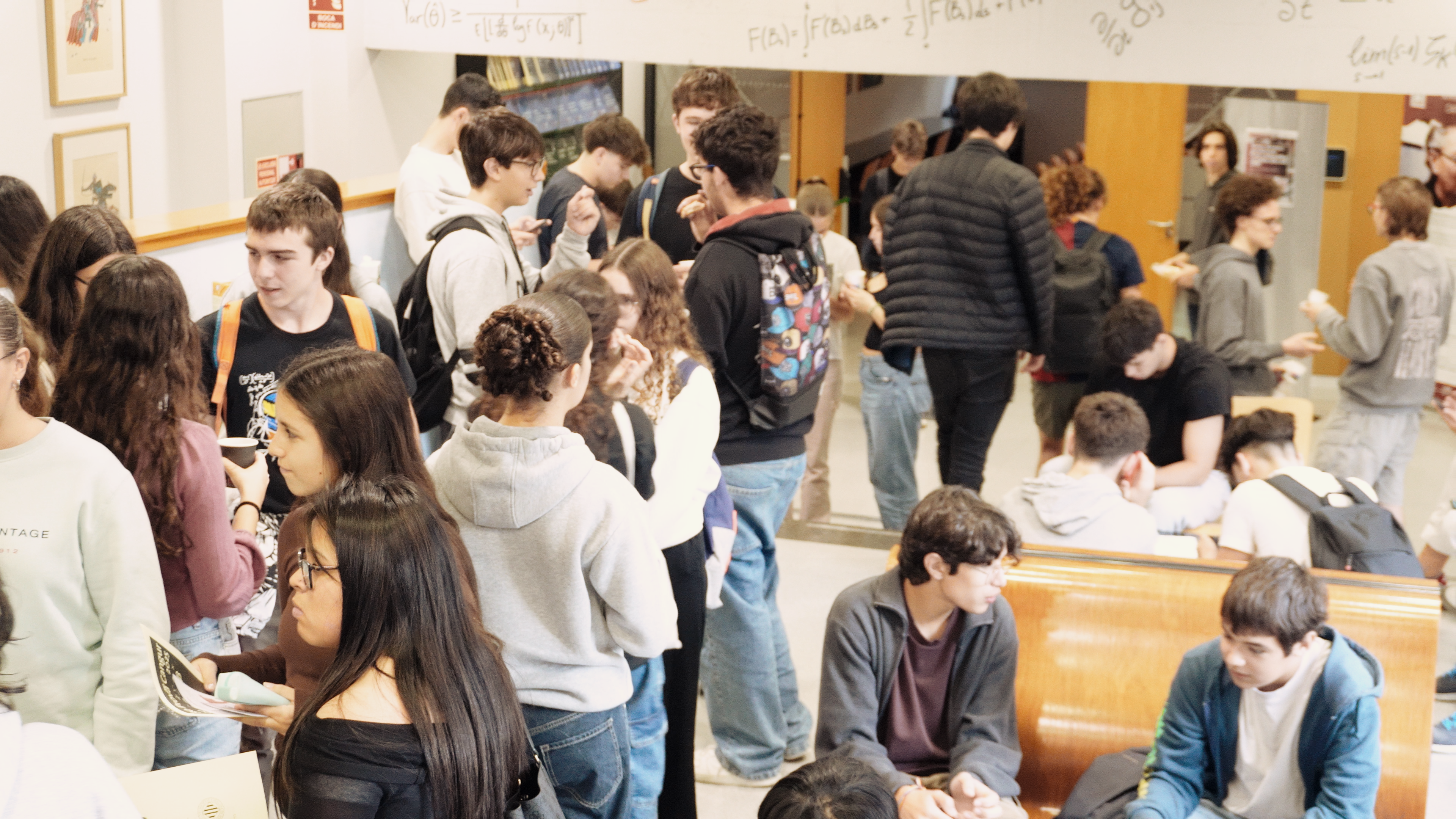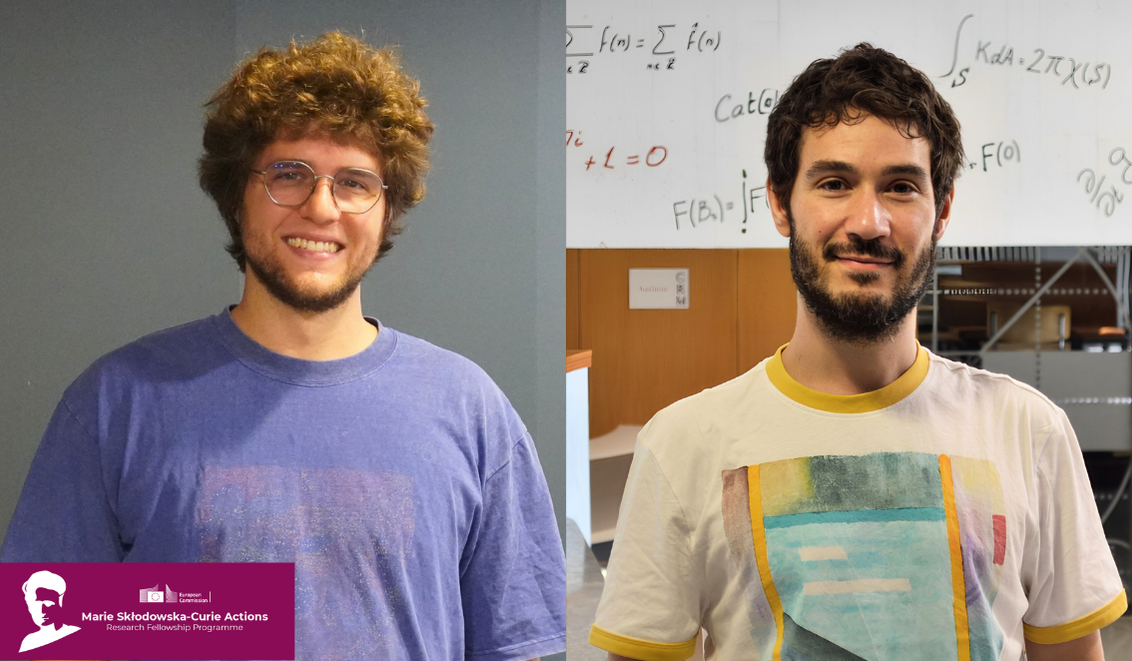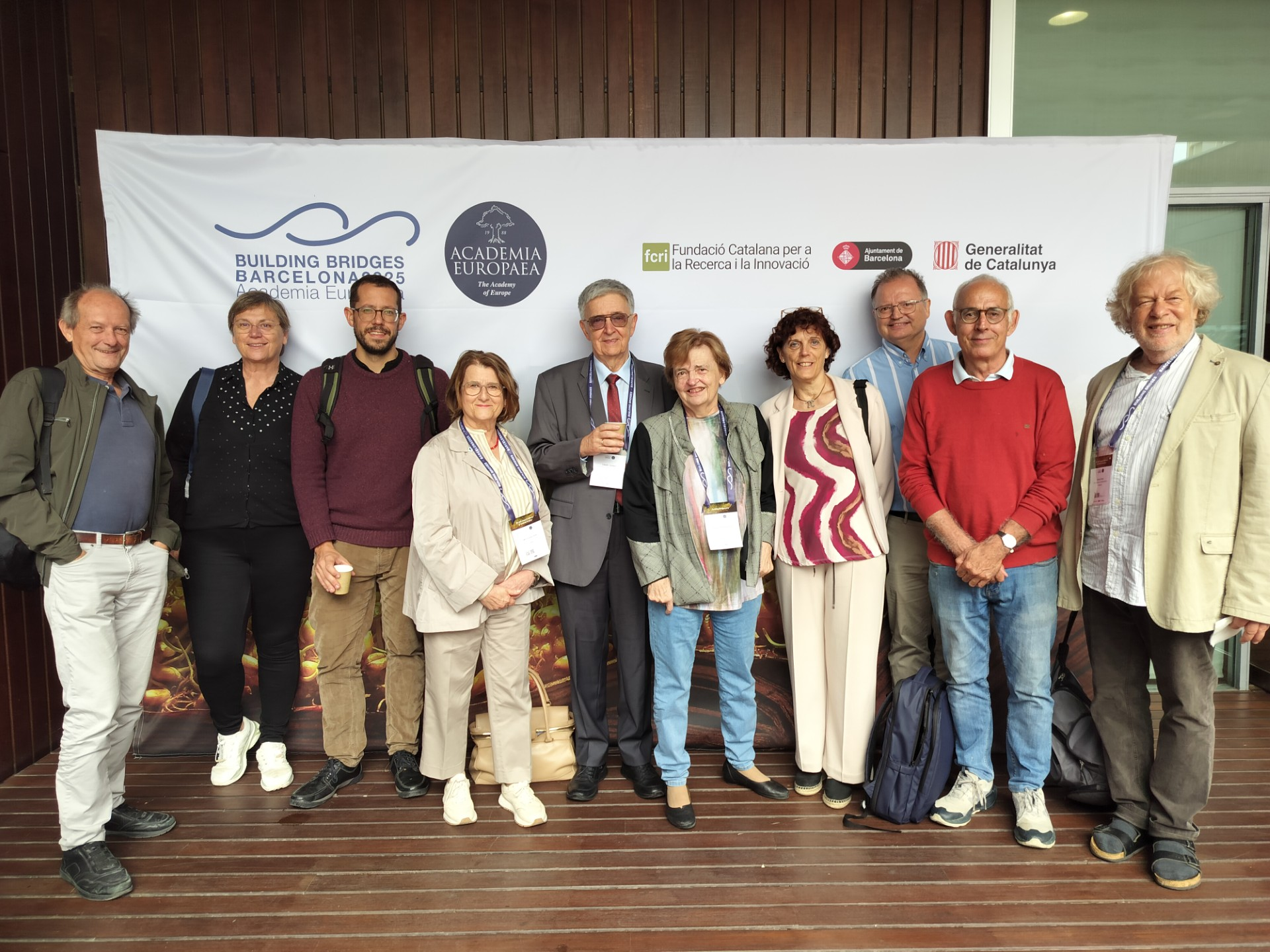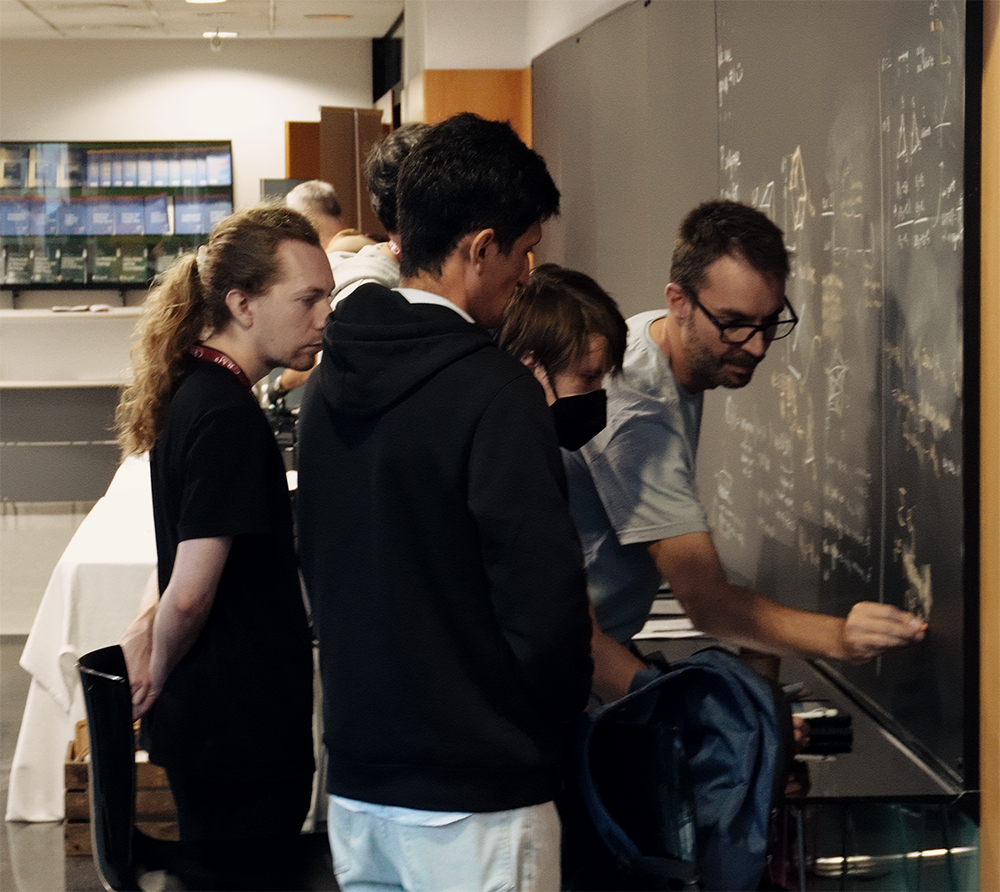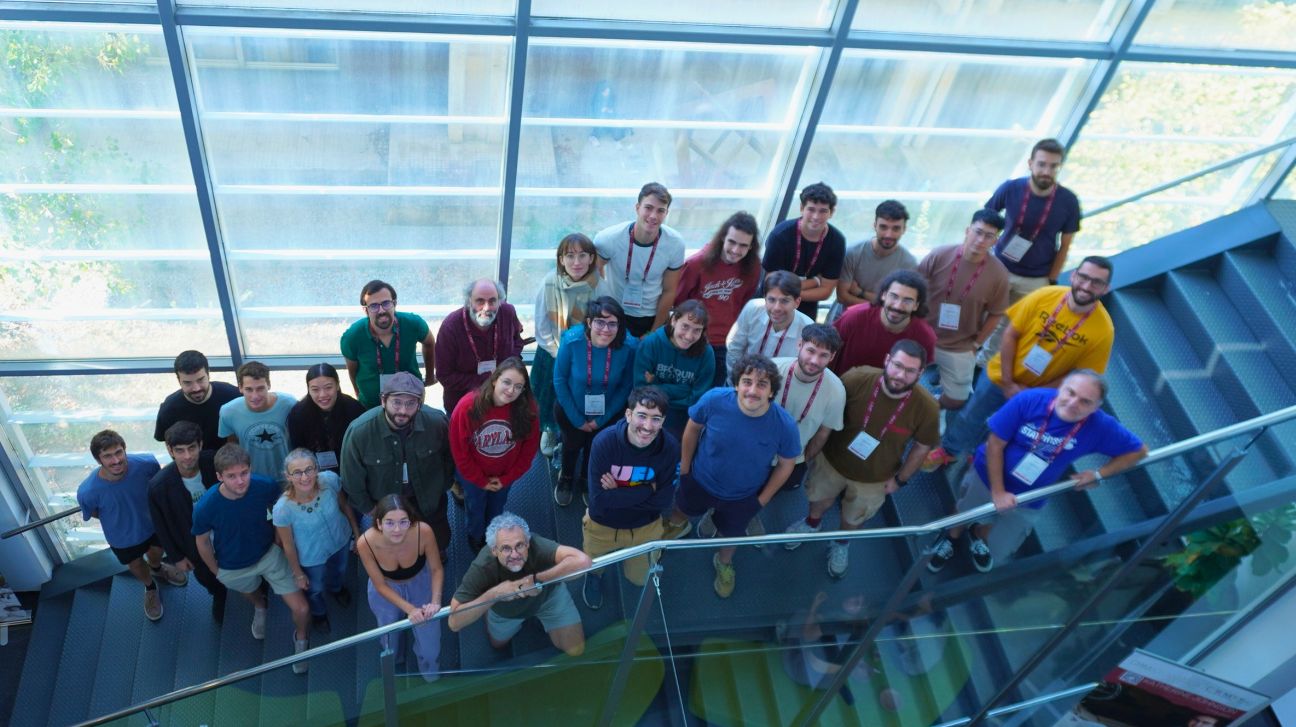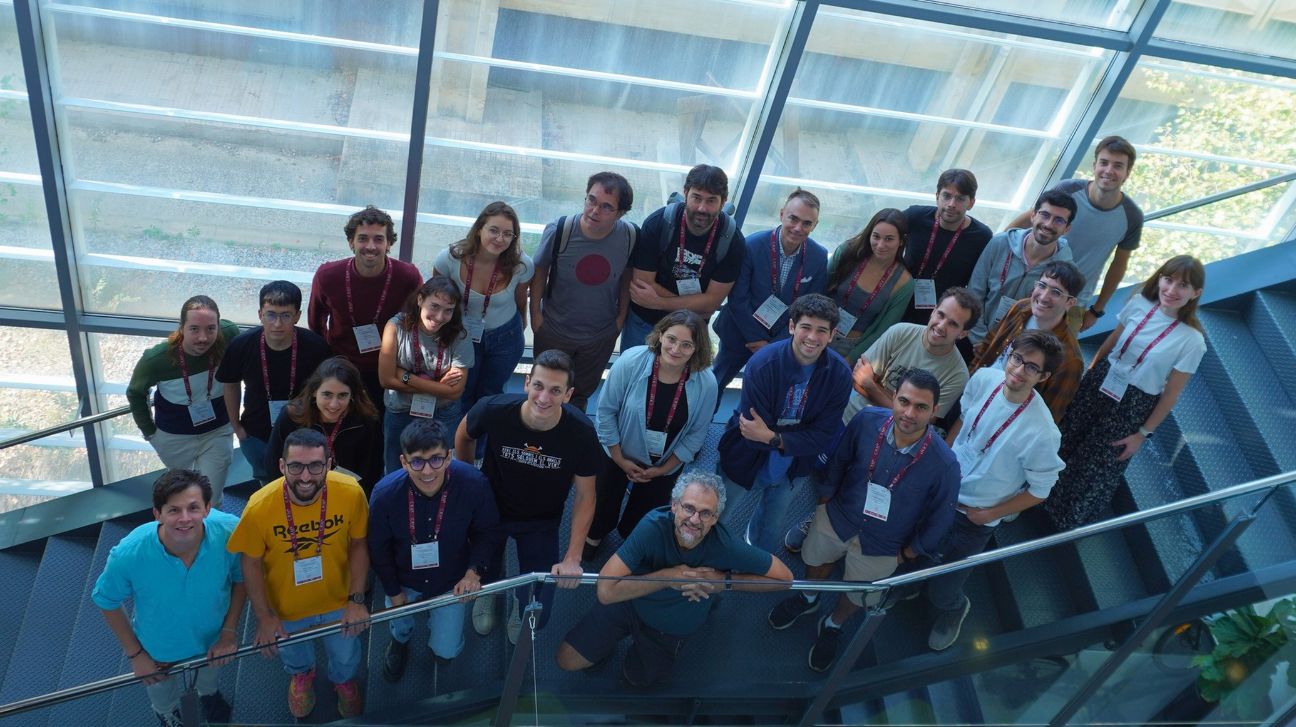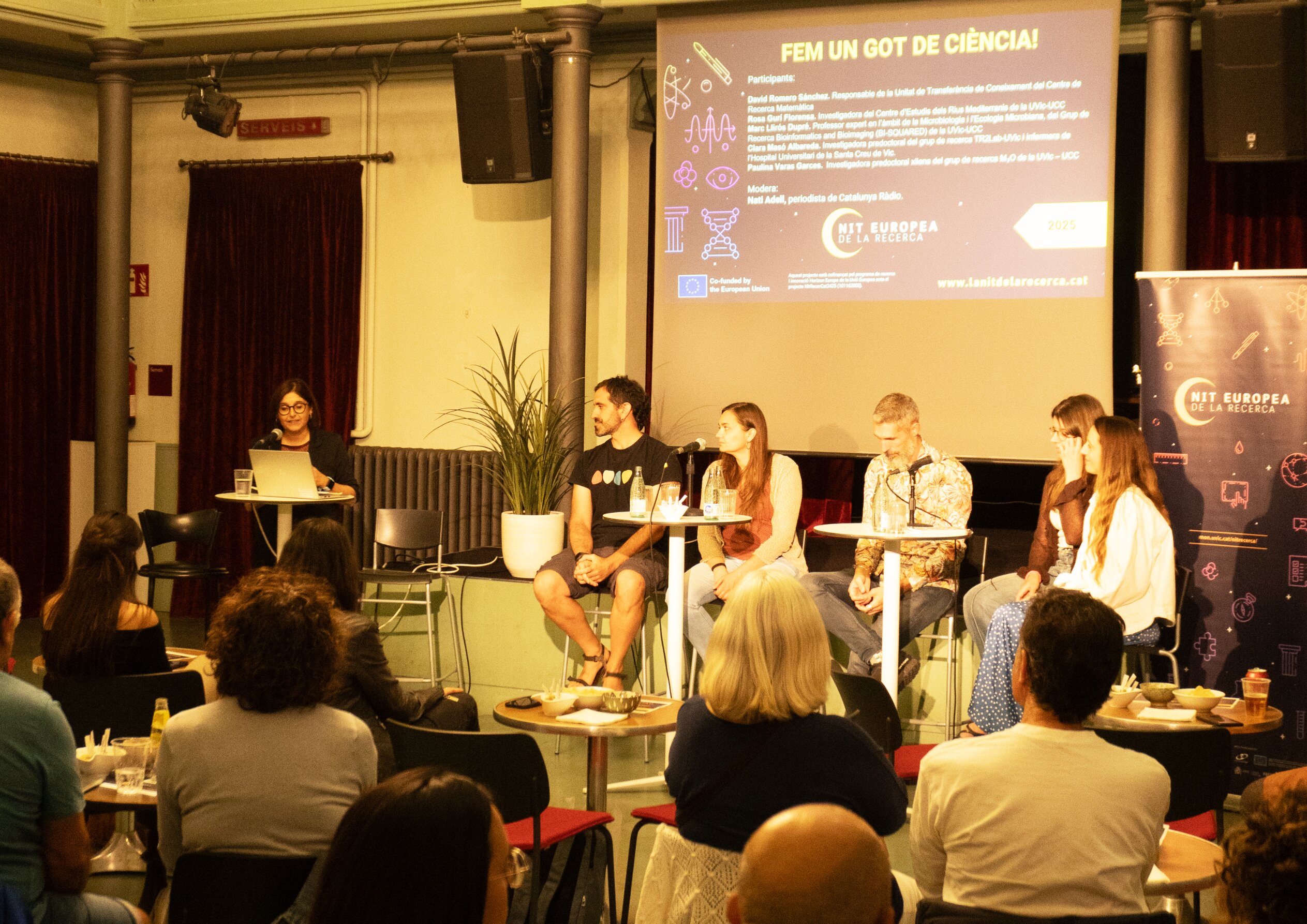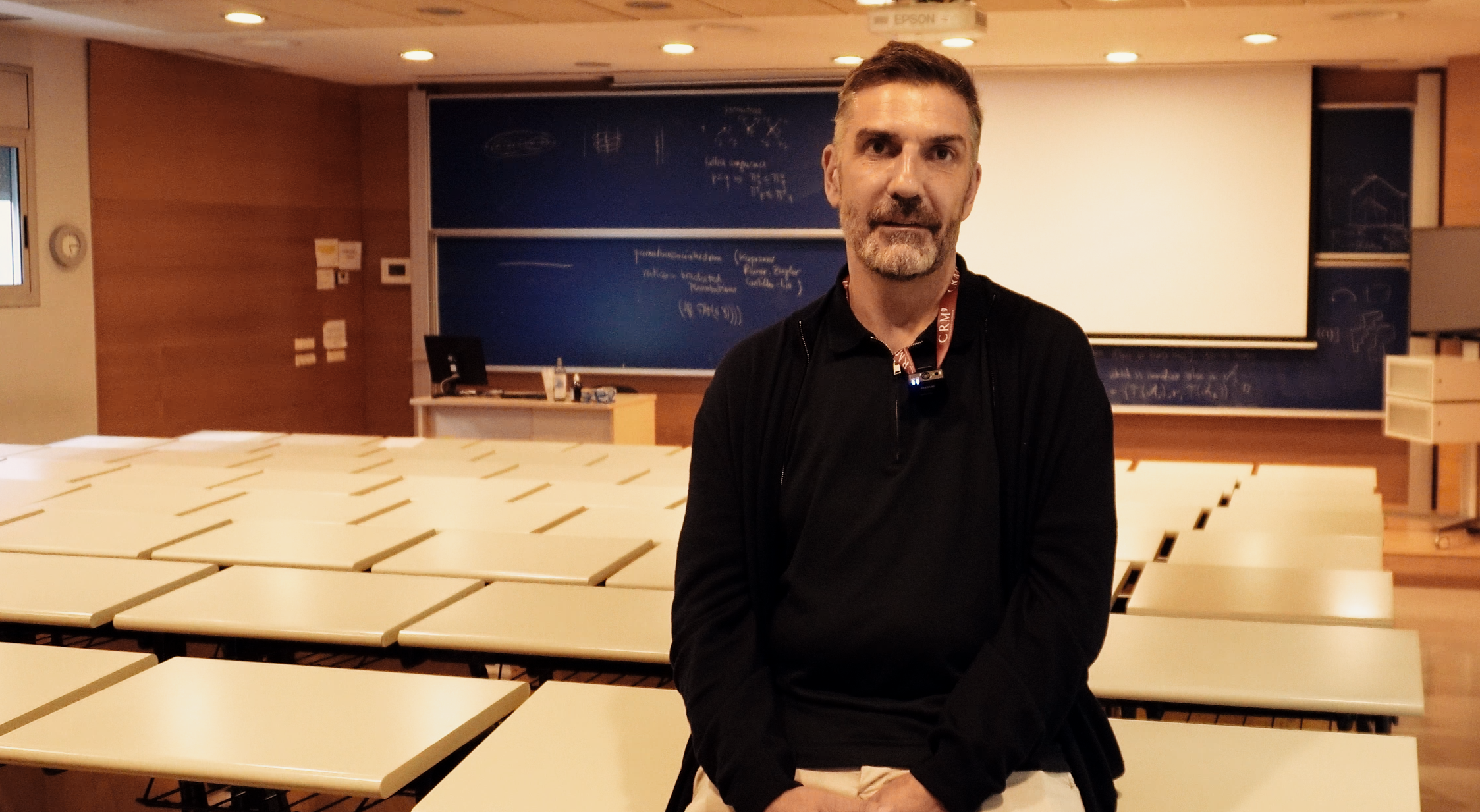
- The XIII GEFENOL-DIFENSC Summer School gathered over thirty researchers from across Europe to explore how statistical physics helps explain complex phenomena in biology, ecology, networks, and social systems.
- In his closing lecture, Jordi Mompart (UAB) examined how artificial intelligence is reshaping sport through data analysis.
- Mompart connected these developments to the broader framework of complex systems physics and reflected on the value of fundamental research.
This year’s edition gathered more than thirty researchers from leading European institutions, including the École Polytechnique Fédérale de Lausanne (EPFL), Universidad Complutense de Madrid, Universitat de Barcelona, Universitat Politècnica de Catalunya, Universitat de les Illes Balears, Universitat Rovira i Virgili, University Grenoble Alpes, and the CRM itself. This diversity of origins and disciplines underscores the school’s interdisciplinary character and its ongoing role as a forum where physics, biology, mathematics, and data science intersect.
The closing talk was delivered by Jordi Mompart, professor at the Universitat Autònoma de Barcelona (UAB), under the title Artificial intelligence in a sports club. Discussing the growing influence of AI, he identified two main areas where its impact is most evident: data analysis and smart stadiums. “In the world of sport, there are two verticals where data and artificial intelligence are beginning to have a very large impact,” he explained. “Tracking data, combined with artificial intelligence algorithms, is used for pre-match, post-match, and scouting analyses in a highly professional way.” He also highlighted how new technologies are changing the infrastructure of sport itself. “Many clubs are renovating or building new stadiums, and these stadiums have many devices. This is the world known as the Internet of Things,” he said. “These devices produce vast amounts of data that are highly relevant for maintenance, operations, and security.”
“Complex systems are everywhere. They can be found in the study of how cancer progresses in the body, in the movement of bees or bird migration, in market behaviour or social network interactions. But they also exist in the world of entertainment and in football.”
Mompart linked these transformations to the core concepts of complex systems physics, one of the main focuses of GEFENOL. “Complex systems are everywhere,” he noted. “They can be found in the study of how cancer progresses in the body, in the movement of bees or bird migration, in market behaviour or social network interactions. But they also exist in the world of entertainment and in football. We all know that individual players are important, but players form associations and ultimately constitute a complex system.”
He also underscored the role of basic research in driving today’s technological breakthroughs. “Things start in the academic world; then, if they work, they move into engineering and eventually reach the market,” he said. “Scientists who work deeply in a specific field of knowledge can see whether one day it will make its way to the market. Those who worked on the foundations of quantum computing knew that sooner or later it would emerge; the same is true for artificial intelligence.”
Mompart emphasised that academic training develops valuable skills applicable beyond research. “The fact that scientists attend conferences, teach, and can explain things in depth but clearly is very valuable,” he said. “These skills developed through research and teaching have been very useful to me in the business world. There’s a certain shortage of people with an academic background who have this analytical and explanatory ability.” For him, mastering the fundamentals of a discipline remains essential. “Having worked on the foundations of a field of knowledge is very rewarding, because there’s depth, there are mistakes, and you learn from mistakes,” he reflected. “Having gone through them before anyone else gives you a competitive advantage.”
With his talk, Mompart closed another edition of the GEFENOL‑DIFENSC Summer School, which continues to consolidate its status as a forum for interdisciplinary dialogue aimed at understanding the collective mechanisms that shape the world.
You can listen to the full interview on CRM’s YouTube channel.
|
|
CRM CommPau Varela
|
Els estudiants participants a la prova de preselecció de Bojos per les Matemàtiques visiten el CRM
La prova de preselecció de Bojos per les Matemàtiques va reunir estudiants de tot Catalunya a la UAB i al CRM, amb presentacions a càrrec de Montse Alsina, presidenta de la Societat Catalana de Matemàtiques, Núria Fagella, degana de la Facultat de Matemàtiques i...
Critical Slowing Down in Genetic Systems: The Impact of Bifurcation Proximity and Noise
An international collaboration including researchers from the Centre de Recerca Matemàtica (CRM) has shown that when several bifurcations occur close to one another, their interaction can dramatically amplify critical slowing down effect - the progressive slowdown of...
Two CRM researchers begin their Marie Skłodowska-Curie fellowships
Gustavo Ferreira and Tássio Naia, CRM postdoctoral researchers and new Marie Skłodowska-Curie fellows. Gustavo Ferreira and Tássio Naia, who joined the CRM in 2023 through the María de Maeztu programme, have started their Marie Skłodowska-Curie postdoctoral...
Matroid Week at CRM: A Collaborative Dive into Combinatorial Geometries
From October 13 to 17, 2025, the CRM hosted Matroid Week, a research school on combinatorial geometries and matroid theory. Courses by Laura Anderson and Geoff Whittle explored intersection properties and structural emergence in matroids. The event fostered deep...
László Lovász receives the 2025 Erasmus Medal in Barcelona
Mathematician László Lovász received the 2025 Erasmus Medal from the Academia Europaea yesterday at the PRBB in Barcelona, where he delivered the lecture “The Beauty of Mathematics”. Renowned for his work in graph theory and discrete mathematics, Lovász has shaped...
Combinatorial Geometry Takes Shape at the CRM
For one week in early October, the Centre de Recerca Matemàtica became a meeting ground for the world of combinatorial geometry. The Polytope Week research school gathered more than fifty participants from three continents to study the interplay...
Learning the Language of Complexity: XIII GEFENOL Summer School Highlights
From October 6–10, 2025, the Centre de Recerca Matemàtica hosted the XIII GEFENOL-DIFENSC Summer School, bringing together young researchers and leading experts to explore the role of statistical physics in understanding complex systems. The program featured courses...
A Week Inside Complexity: The First CS3 Summer School at the CRM
The first CS³ Summer School on Complex Systems transformed the Centre de Recerca Matemàtica into a crossroads of ideas, where physicists, biologists, economists, and mathematicians explored how order and chaos intertwine across nature and society....
Jezabel Curbelo receives the 2025 National Research Award for Young Researchers in Mathematics and ICT
Full professor at the Universitat Politècnica de Catalunya and researcher at the Centre de Recerca Matemàtica, Jezabel Curbelo has been honored with the 2025 National Research Award for Young Researchers in the María Andresa Casamayor category (Mathematics and ICT)....
Tim Myers represents ECMI at the ICIAM Board Meeting and promotes industrial mathematics in Vietnam
ICIAM Board and VIASM Members during a breakVietnam hosted the ICIAM Board Meeting and Workshop this September at the Vietnam Institute for Advanced Study in Mathematics (VIASM), gathering 70 delegates from five continents. CRM researcher Tim Myers attended as the...
Why Your Brain Is Never Still: Representational Drift and Statistical Learning
A paper recently published in Current Opinion in Neurobiology by Jens-Bastian Eppler, Matthias Kaschube, and Simon Rumpel shows that...
El CRM porta les matemàtiques a la Nit Europea de la Recerca: de l’asfalt als fractals i al futbol
La Nit Europea de la Recerca va portar a Barcelona, l’Hospitalet i Vic tres investigadors del CRM que van mostrar la diversitat i la vitalitat de la recerca matemàtica. A la Casa Golferichs, Leticia Pardo (UB-CRM) va introduir el públic en el món dels fractals,...

